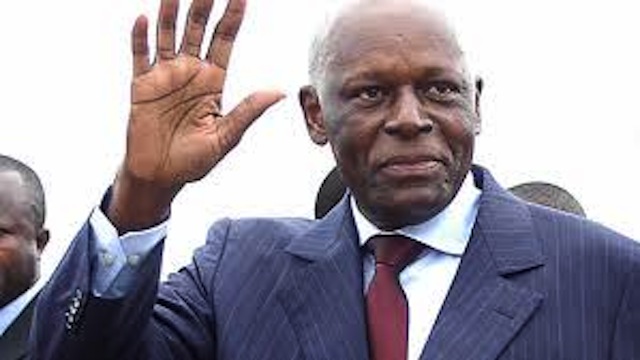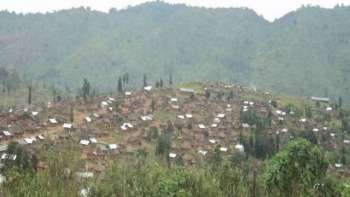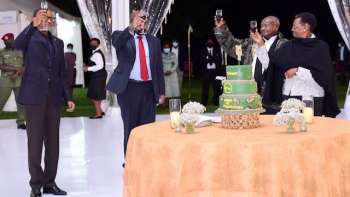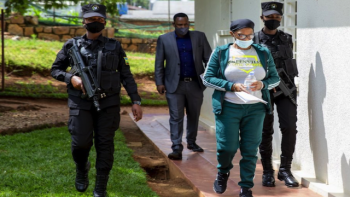Angolan President Jose Eduardo Dos Santos is one of the longest serving African leaders. The 71 years old leader, in power since 1979, has said that this is his last term in office. Rights groups and independent observers have accused him of personalized and autocratic rule and sometimes of corruption. His daughter, the businesswoman and investor Isabel Dos Santos considered by Forbes to be the richest woman in Africa and the most powerful and richest woman in her country. She owns several businesses in Angola, Portugal, and the Netherlands. But although she appears to have benefited from being the first daughter of Angola, those close to her do not question her business acumen and her entrepreneurial spirit since she graduated from the UK elite school of King's College.
It is that spirit that appears to have prevailed in Angola since the country emerged from decades of civil war.
A Deliberate Policy Towards For Development
Unlike some African dictators across Africa, Jose Eduardo dos Santos adopted a deliberate approach to sustained development, using both Angolan rich natural resources and government policies. First, he made sure that Angolan businessmen, including his daughter obviously, acquired shares and interests in foreign companies willing to conduct or do business in Angola. Second, he instituted what is know as presidential grants; or interventions to help start-up companies, companies facing challenges, or those investing in strategic but not immediately profitable sectors.
It is from that perspective that, in mid July 2014, Jose Eduardo Dos Santos personnally ordered that the Angolan state guarantee up to US $5.7 billion in troubled loans belonging to the Angolan unit of Portugal's based financial conglomerate, facing financial difficulties
Although the move was widely criticized, this is how Angolan leader has been operating. This kind of intervention has helped the country to recover from the years of chaos, killings, and humanitarian tragedies.
Vast and Underexploited Natural Resources.
Angola has large deposits of oil and minerals.Angola has been depending on oil too much, and the government may have realized that this unsustainable. Oil represents more than 40% of GDP and Angola is the second producer of oil and natural gas in Sub-Saharan Africa.
It was also the third World largest producer of coffee before its independence from Portugal and the ensuing civil war. The coffee industry had collapsed, and almost became extinct during the Civil war. Now, in 2012, according to Bloomberg (see here), the coffee production will return to these levels. Several foreign companies, including the Vietnamese Thai Hoa are taking the opportunities offered by the new prospects of Angola's agriculture recovery. The foreign companies are acquiring large expanses of land to plant coffee. At the same time Angola has been working with the United Nations-backed Common Fund for Commodities (CFC) to develop small farms.
Angola's Challenge: The After Jose Eduardo Dos Santos
Jose Eduardo Dos Santos is on his way out. The highly secretive African leader has been discretely touring the World and visiting the allies who helped him during the civil war and those who have strong business interests in Angola. According to sources close to the Angolan leader, the purpose of his trips was to thank the leaders of these countries for the help when few were wiling to help and reassuring others that their business interests will be safe even without him
In France, where he spent close to a week in mid-june, he met the senior French politicians but most importantly the senior executives of the French oil company Total.
After France, Jose Eduardo Dos Santos traveled to Cuba, to thank Fidel Castro and then Brazil. Brazil has been a long time partner of Angola; they were both were Portugese colonies.
In a recent summit of the leaders of the countries members of Southern Africa Development Community (SADC) and the International Conference on the Great Lakes Region (CIRGL) held in Angola on July 2 2014, Dos Santos reaffirmed that peace in Eastern Democratic Republic of the Congo will be his last major political initiative before he retires from politics for good.
Now in Angola, the war of succession has been launched. Major questions remains, including: who will replace one the longest serving, influential, yet secretive, leaders in Africa. Will the heir to throne be a capable leader to continue the momentum? will he continue the policies and respect agreements with foreign investors. Many questions to be answered.


















